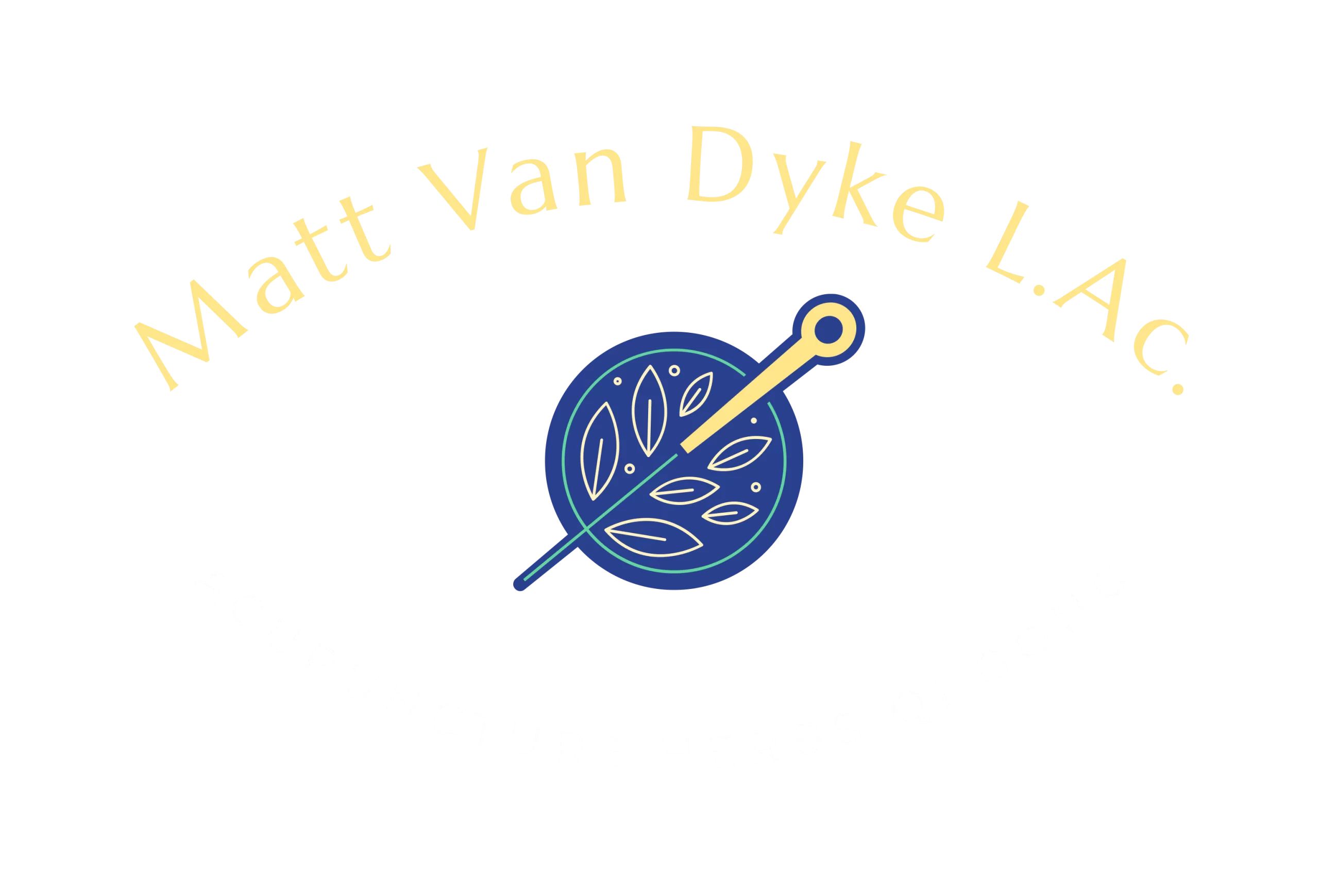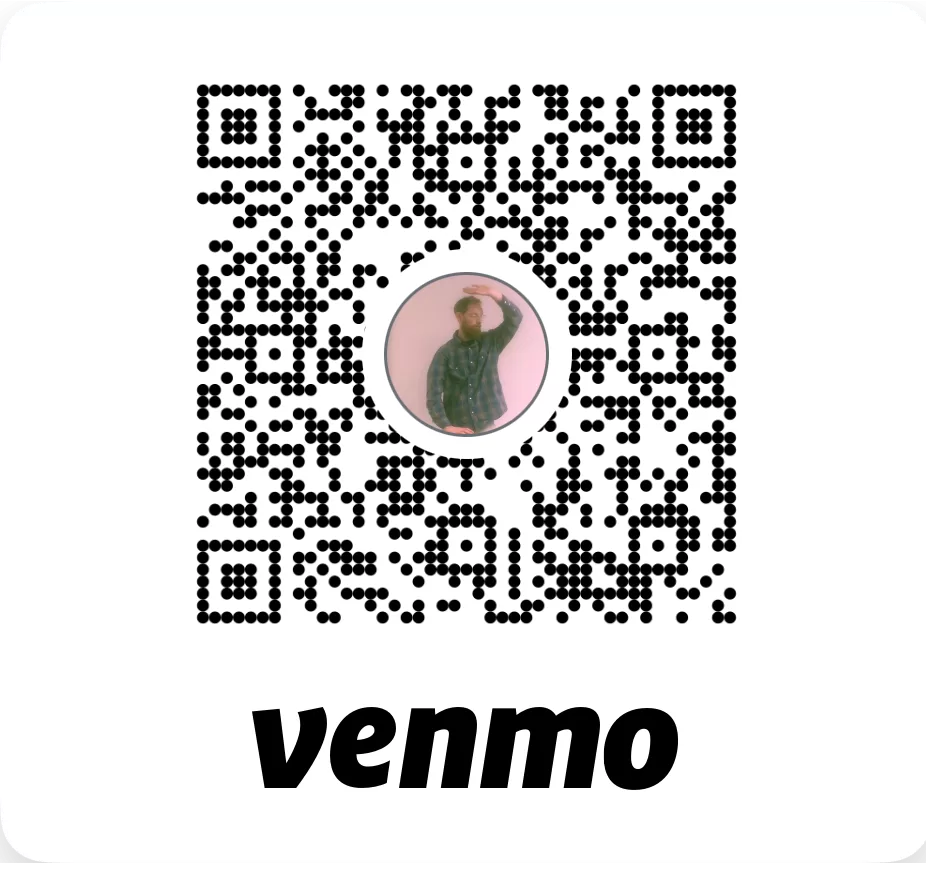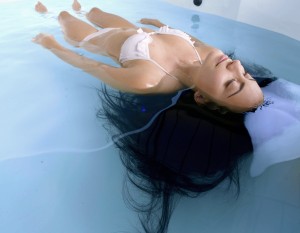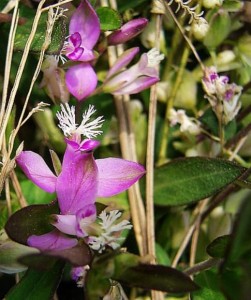-
 Matt Van Dyke, L.Ac. EAMP1405 Fraser St. # 1
Matt Van Dyke, L.Ac. EAMP1405 Fraser St. # 1
Bellingham, WA 98229(360) 466-1800 - Testimonials
Matt is a compassionate healer and truly cares for his patients. He’s thorough to figure out the issues affecting you and goes out of his way to provide the best treatment at each session. He communicates well to understand the underlying issues. He helped me with my Covid vaccine side effects and helped my body to recover. I appreciate all that he’s done for me. It’s too bad that I am leaving B’ham and I hope to find another healer
... Read more »I have been seeing Matt for a couple of months now , since my episode with COVID-19. I have been working on a strange side-effect that had to do with the movement of my right foot. Every visit has been uplifting with progress that I’m sure wouldn’t have been as obvious as it is when I get home after a treatment with Matt. I never knew that acupuncture could yield such dramatic results. Matt is very personable in his approach
... Read more »Matt combines knowledge, experience, professionalism, humility and genuine caring to greatly assist in the restoration and maintenance of health. His clinic is orderly, comfortable and clean! Matt doesn’t rush anything, asking thoughtful questions and he listens with his full focus. Matt is gentle in technique and spirit, and interacting with him is, in itself, calming. His acupuncture treatments have helped my chronic low back pain a lot!
Doug – Ferndale, WA
I feel fortunate to have found Matt and his services. He is very knowledgeable and caring. I see him for acupuncture and herbal support. I have had 2 surgeries in the last year and felt pretty out of whack. Since the treatments started I can sleep 6-7 hours without waking up…which is kind of a miracle for me, especially since one of the reasons for waking up after 3 or so hours was bladder urge. It feels like things are
... Read more »After years of struggling with significant and debilitating lack of energy and trying what felt like everything under the sun with little success, I am back not only to my old self, but to my younger self as well! This after only a little more than a month receiving acupuncture treatments and recently starting Golden Shield Qigong. Matt applies his deep knowledge of Chinese medicine with skill and most importantly, from the heart – a true healer! I am grateful
... Read more » - Sign up to receive news and updates and get my free report:“The Top 10 Reasons to Try Acupuncture”

-
Latest Articles:
- • Add These 10 Immune-Boosting Foods to Your Fall Diet •
- • Keep Your Skin Healthy and Glowing with these Fall Skincare Tips •
- • Beat End of Year Burnout with these Fall Self-Care Rituals •
Uncategorized
Dancing with the dead: Red pine & the art of translation
Bellingham Health and Movement Collective Presents:
Dancing With the Dead: Red Pine and the Art of Translation
Movie Screening
Special Guest Spring Cheng!
Friday March 7
7 PM
1405 Fraser St, STE 101 Bellingham 98229
Limited snacks provided, feel free to bring your own
$5-10 SuggestedDonation: Cash or Venmo @Matt-VanDyke-3 (Donations will go towards performers, BHAMCollective, and/or local good causes)

ABOUT THE FILM
The film tells the adventurous and sometimes comical adventures of
Bill Porter (Red Pine), a world-renowned translator of ancient Chinese
poetry, who ignited a movement in China to seek inner peace through
poetry and mountain solitude. In these fraught times of political and
economic relations with China, Bill is a living bridge between the two
cultures, a bridge that is supported by ancient poetry and
understanding.
Spring Cheng
Spring Cheng brings her incredible artistry to the film through her
singing of many of the ancient poems in the film. Spring was born in
China and came to the U.S. in her early twenties. Her childhood was
very difficult.
“I was born during the Cultural Revolution, one of the darkest hours
of China’s modern history. The whole nation was in a state of chaotic
fractions, brutal divides, and wanton self-destruction.”
By the age of eight, she was praying for a way out of the personal and
collective deprivation and abandonment she found herself drowning in.
Then she discovered ancient Chinese poetry.
“Chinese classic poetry kept me alive as I grew up in China, literally
feeding my body and soul at a time when both food and beauty were
scarce.”
Ward was searching for a singer for the film but had given up after
nearly a year with no results. Then he met Spring at a dance retreat
when she stood up and sang an ancient Chinese poem. He had found the
film’s singer.
“As if directed by an unseen hand, Ward’s artistry of movie-making and
my musical expression matched each other in a loving embrace.
everything happened as if being orchestrated by an invisible hand
weaving threads of mystery.”
Healthy Foods for Fall

The season of fall brings cooler weather and shorter days. As with any season, the world adjusts accordingly. Plants begin to go dormant, animals begin scrounging for food to store to get them through the upcoming winter months and humans start winterizing everything.
As fall descends on the land, it reminds us we need to start cutting back on the numerous cooling foods that are consumed during the summer months. Things like raw foods, salads, juices and fruits should be decreased because they can create too much cold in the body, according to traditional Chinese medicine. continue reading
Five Reasons to Get Acupuncture for Low Back Pain

Statistics show eight out of 10 people will experience low back pain at some point during their life. Seeking medical treatment for back pain is very common. Typically back pain is fleeting and can be easily resolved with rest, heat and an occasional anti-inflammatory like ibuprofen. However, once the damage is done, the recurrence of back pain can be as high as 50 percent. Part of this is because as we age, things like muscles and tendons become less flexible and pliable. It is also very well known in the United States, people are too sedentary and this leads to excess weight gain that can create added pressure on the body, especially the low back. continue reading
Acupuncture while Floating? Floatupuncture is Born.

By Matt Van Dyke, EAMP
Those of us who are Acupuncture junkies know the relaxing and transformative power of placing tiny needles at various points in the body. I mean, I should know, I’m an Acupuncturist. The whole reason I got into this profession is because the first time I had acupuncture done on me, I felt euphoric. I felt high. I felt blissed out. That from just a few needles? No drugs? No side effects? No hangovers? And it’s good for me? I was sold.
Fewer of us know the relaxing and transformative power of floating in a womb-like environment such as the Floatation Tank (aka Sensory Deprivation Tank, Isolation Tank – though calling it such things is out of vogue, you might scare off potential clients). I’d actually experienced Floating long before I had ever experienced Acupuncture. I was attracted to the ‘instant-samadhi’ that people were describing who floated in the tank. A rocket powered boost for your meditation practice. For those who don’t know, to Float, you are suspended on an extremely buoyant epsom salt solution in a darkened chamber, with the ambient sound still, and the ambient temperature exactly right so that instead of feeling the water, the water feels like part of your skin. Or rather, your skin disappears and the boundaries between yourself and your environment begin to fade. Relaxation squared, a return to the womb. Stress melts away, pain melts away, the mind clears and creativity is enhanced. Sound intriguing? It is.
So for a long time I’ve been speculating on the potentially synergistic effects of Floatation + Acupuncture. I mean, they’re both amazing in their own right, but sometimes in Acupuncture sessions I have patients who can’t quite get comfortable on the table because of their chronic or acute pain. Or perhaps they are easily distracted by the construction noises outside. And with floating, sometimes it takes a while to get relaxed and turn off the mind when you’re in the tank. So, I thought, why not use them together and see what happens? And it works, it works well. But what about the logistics? Surely you can’t get two people into the tank to have an acupuncture session!? And what about the needles, won’t the salt make the stimulated points sting (just like having a cut or an abrasion would)? The Solution: …Enter the press tack. The press tack is a super nifty invention that takes an intradermal needle (ie a very small, fine needle) and a piece of tape, and ‘tacks’ the specified acupuncture point. The procedure is painless (even more so than regular acupuncture), the needle is still inserted though not very deep, allowing more freedom of movement while still stimulating the point. The tape also protects the skin from potential irritants, like epsom salt.
So the whole procedure (proceed-cake says winnie-the-pooh) is thus…
Arrive 30 minutes before your scheduled Float (at Afloat, Bellingham’s premier Floatation facility), I, the acupuncturist (and herbalist), will run you through a few Chinese Medicinal Diagnostic tests (including the Acu-Graph, which will measure the state of energy flow through your meridians), then proceed (cake) to place a certain number of press tacks in strategic places on your body, usually on your limbs. You will then, if this is your first time Floating, have a brief primer with Dan Martin (Float Guru), who will guide you through the ins and outs of Floating. Then, after a brief shower, which will not interfere with the press tacks, your session of bliss will begin! For most first time Floaters, an hour is sufficient, but for the veterans Dan has longer float sessions available. The press tacks may be removed by you at anytime following the Float session. You can even keep them on for up to 24 hours to extend the therapeutic effects. Are you sold? I am…
To book your combined Floatupuncture session, please contact Matt Van Dyke (that’s me) at 360.466.1800 or matt@mattvandykelac.com
Floatupuncture sessions are being offered right now for the ridiculously low introductory price of $75
Check out Dan’s webpage, Afloattherapy.com, for more info on Floating
Yuan Zhi – Polygala tenuifolia

by Matt Van Dyke, EAMP
Just though I’d share with you my love for Polygala tenuifolia, or Yuan Zhi,(遠志), a truly incredible herb. 🙂
Here’s why I love it so:
Yuan Zhi, in Chinese Medicine, is in the category called ‘nourish the heart and calm the spirit’. No surprise then that this herb activates the heart and lung meridian, and helps treat insomnia, anxiety, and restlessness. What I love about this herb is that it also treats forgetfullness and inability to concentrate. Studies have shown that it produces memory-enhancing effects and cognitive improvement in healthy adults and elderly. An herbal nootropic! (Nootropic: a substance that enhances cognition and memory and facilitates learning) Although I haven’t seen any trials, this herb is often used for add or adhd in kids as well. Makes sense, as Chinese herbal formulas for add and adhd tend toward sedation rather than stimulation, which is the Western approach.
Another reason I like this herb so much is that it helps to clear phlegm. Who, in our damp corner of the Pacific Northwest, doesn’t need a little drying out? This phlegm could manifest in the lung, for example, with a productive cough; or it could manifest in the brain with such conditions as emotional disorientation or seizures.
Some cautions, however. Please seek the advice of a competent herbalist if you want to use this herb, or any herb, safely. If you take this herb for a long period of time, you might want to think about using the honey-fried version, or taking with licorice root, as this will protect your stomach from it’s drying effects. Also, if you have a history of gastritis, or peptic or duodenal ulcers, then this herb is not a good choice. This herb is a diuretic, so make sure you have good fluid and electrolyte intake. And finally! Yuan Zhi stimulates uterine contractions, so, if you’re pregnant and you’re ready to have a baby, then this herb could be helpful, but if you’re pregnant and you’re not ready to have a baby, then hold off.
If you would like to schedule an herbal consultation or acupuncture session with me, you can go to www.mattvandykelac.com/schedule-online
Lee J.-Y., Kim K.Y., Shin K.Y., Won B.Y., Jung H.Y., Suh Y.H. (2009). “Effects of BT-11 on memory in healthy humans”. Neuroscience Letters 454 (2): 111–114. doi:10.1016/j.neulet.2009.03.024. PMID 19429065.
Shin K.Y., Lee J.-Y., Won B.Y., Jung H.Y., Chang K.-A., Koppula S., Suh Y.-H. (2009). “BT-11 is effective for enhancing cognitive functions in the elderly humans”. Neuroscience Letters 465 (2): 157–159. doi:10.1016/j.neulet.2009.08.033.

